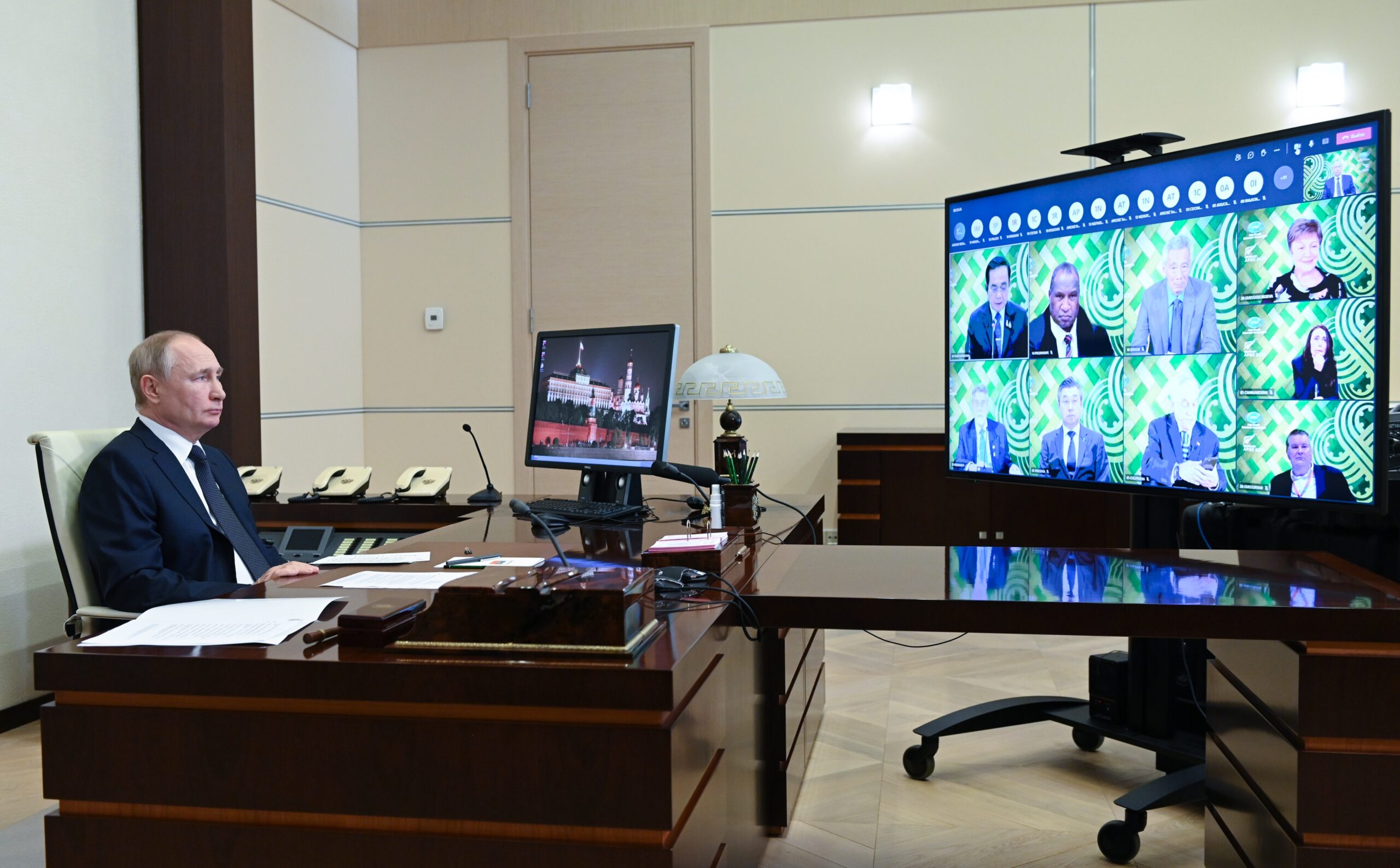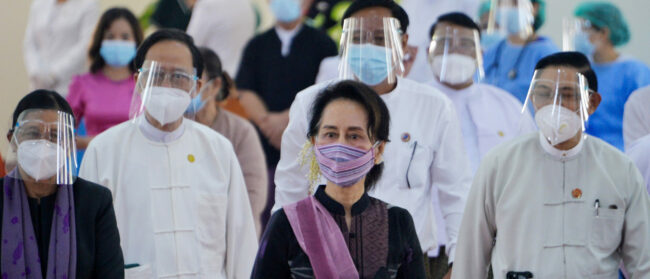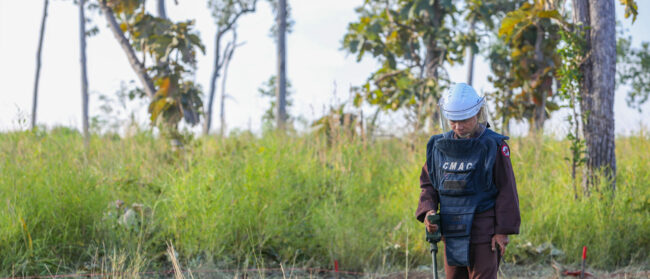Japanese Prime Minister Fumio Kishida plans to visit Thailand on his imminent tour throughout Southeast Asia, as part of Golden Week, a series of four Japanese holidays from the end of April to early May. The trip hopes to strengthen regional cooperation in light of Russia’s weeks-long invasion of Ukraine, the upcoming Asia-Pacific Economic Cooperation summit and increased stress in the Indo-Pacific region due to China’s growing assertiveness and perceived aggression.
Kishida’s trip to Thailand in early May will be the latest in a string of diplomatic visits. Most recently, he met with the son of Cambodian Prime Minister Hun Sen in Tokyo in February and Indian Prime Minister Narendra Modi in March, aiming to enlist their support in the condemnation of Russian action in Ukraine, although with limited success. This time, due to events in the Pacific, which include a Chinese-Solomon Islands security arrangement that could see an increased naval presence in the region and growing concern over Beijing’s plans for Taiwan, Kishida will look to shore up support for Japan’s free and open Indo-Pacific (FOIP).
Kishida is expected to meet with Thai Prime Minister Prayut Chan-o-cha on the occasion of the 135th anniversary of formal diplomatic relations between the two countries. Japan-Thai relations date back to the 15th century but declined and shut itself off from the outside world in the mid-17th century through its isolationist Sakoku policy, where the shogunate imposed a strict isolationist policy and restricted commerce and foreign relations. Bilateral cultural ties include close relations between the Imperial Family of Japan and the Royal Family of Thailand, as the Emperor and Empress of Japan visited Thailand in 2006 to mark the 60th anniversary of the late King Bhumibol Adulyadej’s accession to the throne and Japanese Emperor Naruhito visited Thailand for the coronation of King Maha Vajiralongkorn in 2019. Japan has also been a preferred holiday destination for Thai people, as more than 1.3 million visited Japan prior to the pandemic. Security talks are ongoing, as cooperation through a strategic partnership dates back to 2012.
Thailand’s hosting of the Asia-Pacific Economic Cooperation (APEC) Economic Leaders’ Meeting, scheduled for November, is a primary concern for Japan. Kishida and the Prayuth government have a unique history. Whereas the United States, who responded to the May 2014 coup which overthrew the democratically-elected government of Yingluck Shinawatra with an abrupt change in policy, Kishida, then the Foreign Minister, pragmatically decided to engage with Thailand normally, as it has with other Southeast Asian authoritarians, including Cambodia’s Hun Sen, a departure from other Western countries break in relations with Thailand as a result of Prayut’s undermining of a functioning democracy in 2014. While Japan has slowly withdrawn investments in neighbouring Myanmar, Tokyo is widely considered pragmatic in its relations with the Myanmar’s generals.
Japanese economic interests in Thailand are vast, and remains the top investor in the country. According to the Ministry of Commerce, more than $2.4 billion in foreign direct investment came from Japan in 2021, representing almost 30% of the country’s total investment. Japanese companies such as Honda and Toyota are mainstays of the Thai business landscape, among more than 1,700 companies based in Thailand.
While there are many issues that will fill the agenda between Kishida and Prayut, the APEC Summit is likely to dominate the discussion. Like Indonesia, the chair of this year’s G20 forum, Thailand’s APEC hosting will be complicated by the Russia-Ukraine crisis, and potential negative response by APEC toward the presence of Russia, from among the other 20 APEC members. Thailand’s Ministry of Foreign Affairs has sought to put out fires early, with Foreign Minister Don Pramudwinai pointing out that the forum would highlight Thailand’s role as an “economic ambassador”, a similar position taken by Indonesia at the G20, which dismissed the notion of not inviting Russia in the spirit of economic cooperation.
Russia’s own position also complicates matters for Thailand, as several APEC members have been considered “unfriendly” to Russia, including Japan, Singapore, New Zealand, and the United States. Thailand, partly because of the centrality of APEC this year, has affirmed its neutral position on Ukraine, but it will struggle to control political matters in the run up to November.

Thailand and Japan have much in common and plenty to discuss on matters of trade. Bilateral trade as well as investment in select industries might be a part of Kishida’s upcoming agenda.
Japan ratified the Regional Comprehensive Economic Partnership (RCEP) last year and has spent much diplomatic capital attempting to rally support for it, which included recruiting India. When Thailand was chair of ASEAN in 2019, it worked to finalise key components of RCEP, a highlight of its tenure.In the past, Prayut has invited the Japanese to invest in high technology industries, such as the development of electric vehicles and medicine, particularly in Thailand’s Eastern Economic Corridor (EEC), where Thailand looks to target 12 sectors of the economy, including cars, medicine, agriculture, logistics, and digital technologies, all in which Japan is well established.
The Japan External Trade Organization (JETRO) and Thailand’s EEC Office have made promises to work together to encourage the relocation of Japanese firms and to support those already located in the region to explore the use of high-tech digital manufacturing as a way of reducing production costs. Thailand is banking on innovations like automation to drive the future of the Thai technology sector as well as to generate higher-paying jobs. Thailand has leaned on Japan to help with automation in the industrial sector. Japan’s total investment in the EEC is the equivalent of $2 billion (67.8 billion baht).
Kishida’s brief visit to Thailand is expected to focus on all things APEC and multilateral economic cooperation. It will emphasise areas of mutual concern rather than more controversial or intractable positions, such as Thailand’s “neutral” position on Russia’s invasion of Ukraine. Thailand noted last month that while it urges a peaceful end to the conflict, it remains committed to a “balanced” foreign policy in line with its national interests. Second, while Japan has made some strides in taking normative positions on human rights issues since Kishida assumed his duties as Prime Minister, pragmatic Japanese foreign policy as well as shared monarchical connections preclude a discussion on human rights from their upcoming agenda.
Mark S. Cogan is an associate professor of Peace and Conflict Studies at Kansai Gaidai University in Osaka, Japan. He is a former communications specialist with the United Nations in Southeast Asia, Sub-Saharan Africa and the Middle East.


